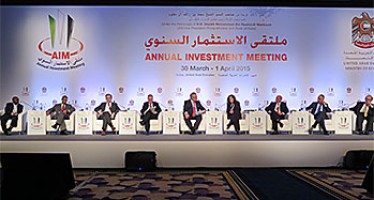EY: Argentina Publishes Decree Implementing Incentive Regime for Large Investments (RIGI)
The Argentine government sets detailed guidelines for the long-awaited RIGI, outlining tax and customs benefits aimed at boosting large-scale investments in key sectors.
On 23 August 2024, the Argentine National Executive Branch published Decree 749 in the Official Gazette, providing operational guidelines for the Incentive Regime for Large Investments (RIGI). This regime, first established under Title VII of Law No. 27,742, offers significant benefits to both foreign and local investors who commit to executing large-scale investments. The primary goal of RIGI is to provide these investors with predictability, stability, legal certainty, and protection of acquired rights in tax, customs, and foreign exchange matters.

Argentina: Buenos Aires
With Argentina continuing to face economic challenges, including high inflation and a complicated business environment, the publication of the RIGI decree is a crucial step in the government’s efforts to stimulate economic recovery and attract foreign direct investment (FDI). Investors are looking for stable and transparent frameworks to guide their decisions, and this decree sheds light on many of the key aspects of the regime that had previously been unclear.
Below, we explore the main clarifications and provisions outlined by the decree.
Activities Included in the Incentive Regime
The decree provides more detailed definitions of the sectors eligible for benefits under the RIGI, specifying the types of activities that qualify within each sector. The sectors are diverse and encompass key industries vital to Argentina’s economic growth. Here’s a breakdown of the activities included:
- Forestry Sector: This includes activities where wood is the primary input for production, extending to the planting and development of forests. The sector is seen as critical to both the environment and industry, particularly given the global focus on sustainable development.
- Tourism Sector: Activities here focus on lodging and accommodation services, a vital industry in a country like Argentina, which has a robust tourism sector driven by its natural and cultural attractions.
- Infrastructure Sector: This covers the construction of physical structures, networks, and systems essential for transport (including road, rail, maritime, and air transport), logistics, and public services. Importantly, it also includes infrastructure for leisure projects, such as resorts and entertainment facilities, and critical services like healthcare, education, telecommunications, and national security.
- Mining Sector: This includes activities involving the exploration, development, and exploitation of mineral substances, as well as specific processes defined under existing mining laws. Mining remains one of Argentina’s most significant sectors, especially given the country’s rich natural resources.
- Technology Sector: Innovation is at the heart of this sector, which covers the production of goods and services in areas such as biotechnology, nanotechnology, artificial intelligence (AI), and aerospace. Argentina is positioning itself as a hub for technology development, and the inclusion of this sector under RIGI is intended to spur growth and attract investment in cutting-edge fields.
- Steel Industry: This includes the processing and industrialisation of iron ore, steel, and its alloys, vital for the production of both primary and finished goods.
- Energy Sector: As Argentina continues to diversify its energy sources, this sector covers activities related to the generation, storage, transport, and distribution of electrical energy from renewable and non-renewable sources. It also includes bioenergy production and carbon capture technologies, which are key to the country’s transition to a low-carbon economy.
- Oil and Gas Sector: This encompasses a wide range of activities, from the construction of oil pipelines and storage facilities to the production and export of liquefied natural gas (LNG). Offshore exploration and petrochemical refining are also included, recognising the importance of the energy sector to Argentina’s export economy.
Local Suppliers of Goods and Services
The decree also clarifies the role of local suppliers within the regime. Goods and services suppliers who import merchandise for use in RIGI projects will be exempt from import duties, statistical fees, and customs withholdings. However, these benefits are limited to inputs and intermediate goods that are intended exclusively for transformation into capital goods or information technology products as defined by Mercosur’s Common Nomenclature.
This exemption also applies to suppliers who rent such goods to RIGI projects. In effect, the decree incentivises the development of a local supply chain that can support large-scale investment projects, with the aim of boosting the national economy.
Minimum Investment Amounts
To qualify for the RIGI, investors must meet minimum investment thresholds, which vary depending on the sector. These thresholds are substantial, reflecting the regime’s focus on large-scale, long-term projects. The minimum investment amounts per sector are as follows:
- Forestry, tourism, infrastructure, technology, steel, and energy sectors: $200m.
- Mining: $200m (including both exploration and mineral extraction).
- Oil and Gas (offshore exploration, gas intended for export): $600m.
- Long-term strategic export projects: $2bn.
These minimum investment requirements ensure that the regime targets only the largest and most impactful projects, driving significant economic growth.
Investment Limitations
While RIGI offers generous benefits, there are limitations on the types of investments that qualify. For instance, acquisitions of shares in companies, real estate, and certain concessions are capped at 15% of the minimum investment requirement. This ensures that the regime’s benefits are directed towards productive, long-term investments rather than financial transactions or short-term asset acquisitions.
The decree specifies that this 15% limitation applies to:
- Acquisitions of shares or participations in companies, including the acquisition of other VPUs (Promoted Entities).
- Real estate investments.
- Mining, oil, and gas exploitation concessions.
Local Supplier Development Plan
A critical element of the RIGI regime is the requirement for Promoted Entities to commit to sourcing at least 20% of their project’s investment from local suppliers. The decree defines a Local Supplier as an individual or legal entity domiciled in Argentina, with at least 51% of its share capital owned by entities or individuals also domiciled in the country.
This local content requirement aims to ensure that the economic benefits of large-scale investments extend beyond the projects themselves, fostering the growth of local industries and creating jobs.
Pre-existing Projects
The decree also addresses the issue of pre-existing projects. It clarifies that expansions of existing projects can qualify under RIGI, but the benefits of the regime will only apply to the expansion itself, not the original project. To qualify, companies must either maintain separate accounting for the expansion or establish a dedicated branch solely for the expanded project.
This provision encourages investors to expand current operations, providing a pathway for growth while ensuring that the original project remains distinct from the expansion in terms of incentives.
Transfer of Tax Losses and Export Proceeds
A particularly attractive feature of the RIGI regime is the ability to transfer unused tax losses to third parties. The decree establishes that the Argentine Tax Authority (AFIP) will regulate the process, ensuring that losses can be transferred after five years if not fully utilised. This provision adds flexibility for investors, allowing them to maximise the value of their tax benefits.
In terms of export proceeds, the decree provides further clarity on the “non-entry of exports” benefit, defining the start of activities as the first export of the project’s primary product or the completion of 40% of the minimum investment amount. This ensures that investors have a clear timeline for when they can begin to realise the benefits of the regime.
Non-cumulative Benefits
The decree also specifies that fiscal benefits from other regimes, such as those under the Mining Law, cannot be combined with RIGI benefits if they are of a similar nature. This prevents double-dipping and ensures that investors choose the most appropriate regime for their project.
Looking Forward
The publication of the RIGI decree marks a significant milestone in Argentina’s efforts to attract large-scale investments. By providing a clear and stable framework, the regime offers investors the confidence they need to commit to long-term projects. The 30-year stability period, combined with generous tax, customs, and foreign exchange benefits, makes RIGI an attractive option for investors in key sectors such as energy, technology, and infrastructure.
If successfully implemented, RIGI could be a game-changer for Argentina, driving economic growth, creating jobs, and positioning the country as a hub for large-scale international investment.
About the Author

Author: Sergio Caveggia
Sergio Caveggia is a tax partner currently in charge of Transaction Tax area in Argentina. He joined EY Argentina in 1994 and has developed expertise over 26 years in international taxation and merger and acquisition matters. Sergio is also focus on servicing clients in the Private Client Services (PCS) area. He is highly experienced in inbound and outbound investments, buy side, sell side and restructuring services within the Transaction Tax area.
Sergio has served in a variety of industries and has also been involved in many due diligence procedures performed in the past over 20 years. He has given lectures in national universities and is a frequent speaker in tax seminars. He has also written several articles dealing with Argentina tax issues.
He is a Certified Public Accountant who graduated from University of Belgrano in Argentina. He obtained his Tax Specialist’s Degree at the University of Belgrano and has a postgraduate certificate in Business and Management from Universidad Catolica Argentina (UCA). He is also member of the Professional Council of Economic Sciences of Buenos Aires and the Argentina Fiscal Association.
You may have an interest in also reading…
Ten Guiding Principles to Encourage Foreign Direct Investment
Worldwide, foreign direct investment (FDI) volumes are shortly expected to breach the $3tn mark – representing fully 4% of the
TIM Participações Plays Their Hand Well in the Recent 4G Auction in Brazil
The Brazilian government has raised 2.93 billion Brazilian reals ($1.4 billion) from the auction of 4G wireless airwaves, president of
Davos: Inequality Causes Concern, Few Expect Improvement
A semblance of calm has returned to Davos. The World Economic Forum (WEF) has finished this year’s proceedings and most

















































































